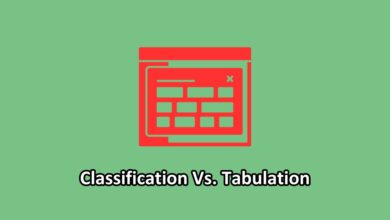In a fast-paced business landscape, the intricacies of procurement processes often involve navigating through terms like quotations and tenders. Imagine a scenario where securing the best deal for your business is not just a goal but a necessity.
Today, we embark on a journey to unravel the essence of quotations and tenders, understanding how these two elements play a pivotal role in shaping procurement strategies.
Quotations and tenders are fundamental components of the procurement landscape. They serve as formal offers from suppliers, detailing the terms under which they are willing to provide goods or services.
Quotation Vs. Tender (A Comparison)
| Quotation | Tender |
|---|---|
| A quotation is a formal statement provided by a supplier to a potential buyer, outlining the cost and terms for specific goods or services. | A tender is a comprehensive and formal solicitation process initiated by a buyer to invite competitive bids from potential suppliers for larger projects or contracts. |
| Quotations are simpler, focusing on specific goods or services, offering a more straightforward evaluation process. | Tenders address comprehensive project requirements, introducing a higher level of complexity, and necessitating detailed proposals. |
| A quotation is often non-binding, providing flexibility unless expressly stated otherwise in the terms. | It results in legally binding contracts upon acceptance, establishing a formal commitment between the buyer and the successful bidder. |
| Quotations involve fewer competitors, simplifying decision-making and potentially expediting the selection process. | Tenders attract a larger pool of suppliers, fostering intense competition, which may lead to more competitive pricing and comprehensive proposals. |
| Quotations are flexible and informal, emphasizing quick responses and efficient communication. | Tenders follow a structured and formal process, ensuring fairness, transparency, and compliance with specific guidelines during supplier selection. |
What is Quotation?
A quotation, often referred to as a quote or bid, is a formal document submitted by a supplier in response to a request for quotation (RFQ) from a potential buyer. It outlines the proposed price, terms, and conditions for providing specific goods or services.
Essentially, a quotation acts as a transparent and concise offer, enabling buyers to evaluate and compare offerings from different suppliers.
Key Characteristics of Quotations
- Transparency and Specificity: Quotations are known for their clarity, providing detailed information on pricing, delivery timelines, and other essential terms.
- Flexibility: Suppliers may offer variations in terms, allowing for negotiation and customization based on the buyer’s needs.
- Timeliness: Quotations are typically time-bound, requiring suppliers to submit their offers within a specified period to ensure relevance.
Example of Quotation
Suppose a construction company seeks quotations for a bulk purchase of steel. A supplier may submit a quotation specifying the unit price, total cost, delivery schedule, and any applicable discounts. This allows the construction company to make informed decisions based on the presented offers.
What is a Tender?
A tender is a formal and structured procurement process where organizations invite bids from suppliers for the supply of goods or services. It involves a comprehensive set of requirements and evaluation criteria, providing a detailed framework for potential suppliers to submit their proposals.
Tenders are commonly used for significant projects or contracts where multiple suppliers can compete for the opportunity.
Key Characteristics of Tenders
- Rigorous Evaluation Criteria: Tenders often come with strict criteria covering various aspects, including technical specifications, compliance, and financial stability.
- Legal and Binding: Successful tender submissions result in a legally binding contract between the buyer and the chosen supplier.
- Competitive Nature: Tenders foster competition among suppliers, encouraging them to showcase their capabilities and offer competitive pricing.
Example of Tender
Imagine a government agency planning to build a new hospital. They release a tender document outlining the project’s scope, technical requirements, and evaluation criteria. Interested construction companies then submit detailed proposals, including project timelines, cost breakdowns, and relevant experience, competing for the lucrative contract.
Key Differences Between Quotation and Tender
- Scope and Complexity: Quotations are relatively simpler, focusing on specific goods or services. Tenders, on the other hand, address comprehensive project requirements with a higher level of complexity.
- Legal Implications: While quotations are often considered non-binding unless explicitly stated otherwise, successful tender submissions result in legally binding contracts.
- Competition Level: Quotations usually involve fewer competitors, allowing for more straightforward decision-making. On the other hand, tenders, being more extensive, attract a larger pool of potential suppliers, fostering intense competition.
- Formality and Structure: Quotations are more flexible and informal, emphasizing quick responses. On the other hand, tenders follow a structured and formal process, ensuring fairness and transparency in supplier selection.
Procurement Processes
How Quotations Fit into Procurement
In the procurement landscape, quotations play a crucial role in streamlining the purchasing process. They provide a quick and efficient way for buyers to gather information on pricing and terms, facilitating informed decision-making. Quotations are especially valuable for routine or smaller-scale purchases where the complexity of a tender process may not be necessary.
How Tenders Fit into Procurement
Tenders are integral to strategic procurement, particularly for substantial projects or contracts. Their detailed nature allows buyers to assess suppliers comprehensively, considering technical capabilities, financial stability, and past performance.
Tenders ensure a thorough and competitive evaluation process, resulting in the selection of the most qualified supplier for the given project.
Conclusion
In the dynamic realm of procurement, understanding the nuances of quotations and tenders is paramount. While quotations offer simplicity and agility for routine purchases, tenders bring a structured approach to complex projects.
The key lies in recognizing when to deploy each method, ensuring an optimal balance between efficiency and thoroughness in the procurement journey. As businesses navigate these processes, the art of securing the best deal unfolds, paving the way for successful partnerships and projects.



